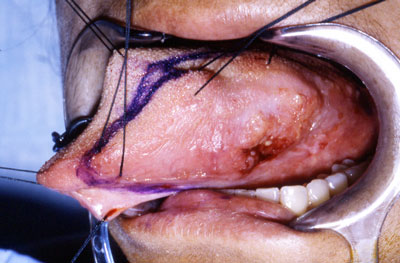Head and Neck Surgery
Dr John Chaplin – Head and Neck Specialist Auckland NZ
Head and neck cancers are a group of malignancies affecting soft tissue and bony structures of the face, head and neck. The sites and subsites of these tumours are important because they are frequently difficult to examine and specialised training and equipment is required to interpret findings. Treatment protocols differ greatly based on the pathology, site and stage of different head and neck cancers. Apart from thyroid cancer these tumours tend to be aggressive and require radical and often multimodality treatment. The main organs and sites that these cancers involve include:
Skin Cancer
Thyroid Cancer
Mouth Cancer
- tongue cancer
- floor of mouth cancer
- palate cancer
Throat Cancer
- nasopharyngeal cancer
- oropharyngeal cancer
- hypopharyngeal cancer
Jaws
Larynx Cancer
- laryngeal cancer
Nasal Cavity/Sinuses Cancer
Neck Lymph Nodes
Nodal metastases in the neck may be the first sign that a patient has a head and neck cancer
Head and Neck Cancer -Tongue and Oral Cavity
Tongue cancer presents as a persistent ulcer usually on the side of the tongue. If an ulcer any where in the mouth is present for more than three weeks and is progressing cancer should be suspected. The other common site is the floor of mouth.
Patients may also present with a lump in the neck as these tumours can metastasise (spread) to lymph nodes. These will usually be in the submandibular region or in the upper lateral neck. See the article on Neck Lumps
Treatment of Tongue Cancer
Cancers of the tongue present at various stages of advancement. Early stage cancers are smaller and spread to lymph nodes less commonly. Advanced tumours are larger, involve more tissues and have a higher rate of spread to the neck lymph nodes. Even small tumours have the potential to spread to nodes and treatment the neck must be considered when treating all cases of oral cavity cancer. Tongue cancers are staged according to the AJCC staging system where smaller tumours (<4cm) are staged T1 and T2 and larger tumours (>4cm) are staged T3 and T4.
Early Tongue Cancers T1 and T2
Most early tumours are best managed by a single modality and surgery is the mainstay of treatment. The portion of tongue containing the cancer is excised with a margin of surrounding normal tissue. The defect is either closed primarily,left to granulate or reconstructed with a free flap depending on the size and components involved. See article on head and neck reconstruction.
If the primary lesion is very small (<1cm) and thin (<4mm) and there are no palpable lymph nodes in the neck it may be reasonable to not remove any lymph nodes and await the pathology results of the primary. If there are poor features or the lesion is deepr than 4mm, a neck dissection is recommended. For any T1 lesions larger than this or T2 lesions with a N0 neck, selective neck dissection is recommended.
If there are positive neck nodes, a therapuetic neck dissection is recommended and the extent of the neck dissection depends on the size, number and levels of involved nodes.
Post operative radiotherapy is given for poor primary pathology features or if more than one lymph node is involved or there is spread of tumour outside the lymph node (extranodal extension of tumour)
Advanced Tongue Cancers T3 and T4
More extensive tumours usually require combined treatment with surgery and radiotherapy. T4 tumours that involve tissue outside the oral cavity like the jaw or skin can involve complex resections and usually reconstruction with composite free tissue flaps as described in the article onhead and neck reconstruction.



